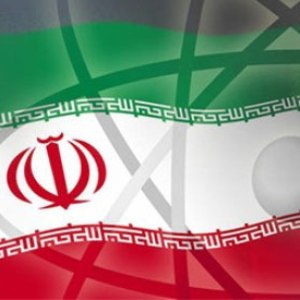The Potentials of Iran’s Nuclear Program
Iran’s nuclear program can open the door to reconciliation. By Kayhan Barzegar, Iran-US affairs analyst

Among the set of perennial problems between Iran and the United States, Iran’s nuclear program seems to be the only bone of contention which can create an opportunity for strategic bilateral talks. Inside American and Iranian political circles, the prevalent belief is that due to the lack of consensus among higher echelons of Iranian politicians, there are no chances of direct talks and political rivals stop each other short of taking any steps towards a parley. During Khatami’s presidency, conservatives countered every single step taken towards rapprochement. Ahmadinejad is suffering the same problem, facing the diatribes of reformists now that he is making friendly gestures towards the United States.
Engagement of Iran and the United States in bilateral talks depends on the negotiation agenda. The truth is that issues such as regional crises, war against terrorism, the Middle East peace process, human rights etc. merely widen the gap between Iran and the United States, since the two countries’ viewpoints on these issues barely overlap. Americans’ favorite political-security option in Iraq (pro-West secular elite taking power) will undermine Iran’s security, while on the Middle East peace process, Iran will never stop supporting its ideological, revolutionary and religious offshoot Hezbollah.
Iran’s nuclear program seems to be the option that opens possible avenues to advance reconciliation. In Iran, a peaceful nuclear program is the only national strategic issue having the potential to gather the political elite under one umbrella. Among the political camps, despite sharp differences on many foreign and internal issues, an independent, domestic nuclear fuel cycle and perpetuation of peaceful nuclear activities is a given. Regional developments of the recent years and a reinforced influence in Middle East have given Iran the leverage to bargain in strategic negotiation. The circumstances have enabled Iran to sit at the table with equal political weight. Chances are that Obama administration has not lost the hope to open dialogue with Iran.
Nuclear program can be a starting point for a win-win game between the two countries. Within this game, neither Iran nor the United States are able to sidestep the demands of the other party. The nuclear fuel cycle program could not be abandoned, since Iran has paid an excessive price for it. United States, on the other hand, will not tolerate an N-bomb possessing Iran. The two sides should agree to play the game by its rules, and the ongoing nuclear negotiations show that they have.
Beyond energy and technology concerns, the nuclear program is a constituent to Iran’s national security, and regional and global strategies. Meanwhile, it can open a gate to strategic talks with the United States. The American government should understand that diplomacy is the only means to achieve a solution accepted by both sides. Adding to the pressures and sanctions only delays the chances of fruitful negotiations.
Engagement of Iran and the United States in bilateral talks depends on the negotiation agenda. The truth is that issues such as regional crises, war against terrorism, the Middle East peace process, human rights etc. merely widen the gap between Iran and the United States, since the two countries’ viewpoints on these issues barely overlap. Americans’ favorite political-security option in Iraq (pro-West secular elite taking power) will undermine Iran’s security, while on the Middle East peace process, Iran will never stop supporting its ideological, revolutionary and religious offshoot Hezbollah.
Iran’s nuclear program seems to be the option that opens possible avenues to advance reconciliation. In Iran, a peaceful nuclear program is the only national strategic issue having the potential to gather the political elite under one umbrella. Among the political camps, despite sharp differences on many foreign and internal issues, an independent, domestic nuclear fuel cycle and perpetuation of peaceful nuclear activities is a given. Regional developments of the recent years and a reinforced influence in Middle East have given Iran the leverage to bargain in strategic negotiation. The circumstances have enabled Iran to sit at the table with equal political weight. Chances are that Obama administration has not lost the hope to open dialogue with Iran.
Nuclear program can be a starting point for a win-win game between the two countries. Within this game, neither Iran nor the United States are able to sidestep the demands of the other party. The nuclear fuel cycle program could not be abandoned, since Iran has paid an excessive price for it. United States, on the other hand, will not tolerate an N-bomb possessing Iran. The two sides should agree to play the game by its rules, and the ongoing nuclear negotiations show that they have.
Beyond energy and technology concerns, the nuclear program is a constituent to Iran’s national security, and regional and global strategies. Meanwhile, it can open a gate to strategic talks with the United States. The American government should understand that diplomacy is the only means to achieve a solution accepted by both sides. Adding to the pressures and sanctions only delays the chances of fruitful negotiations.

